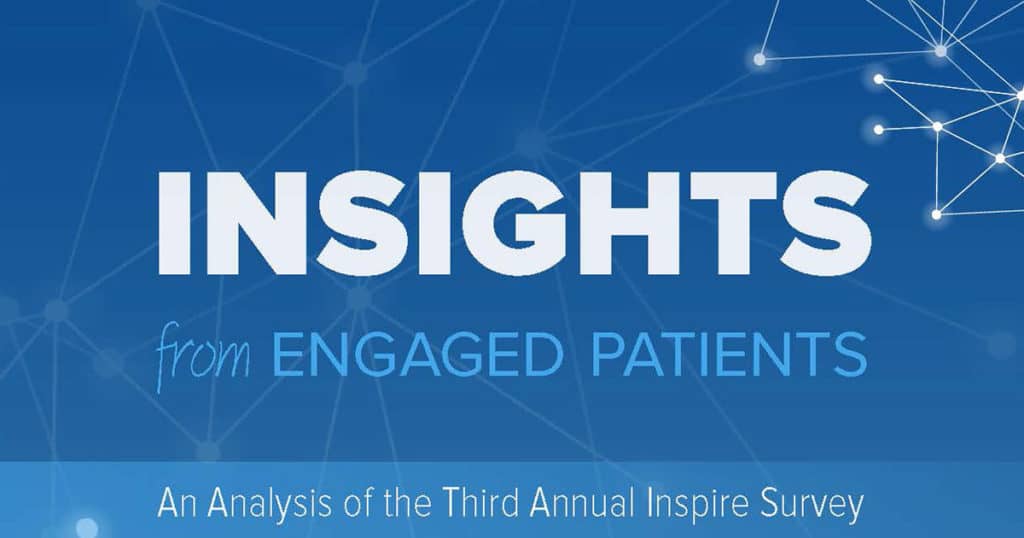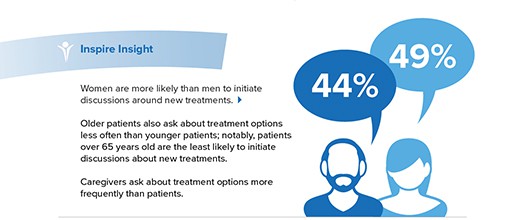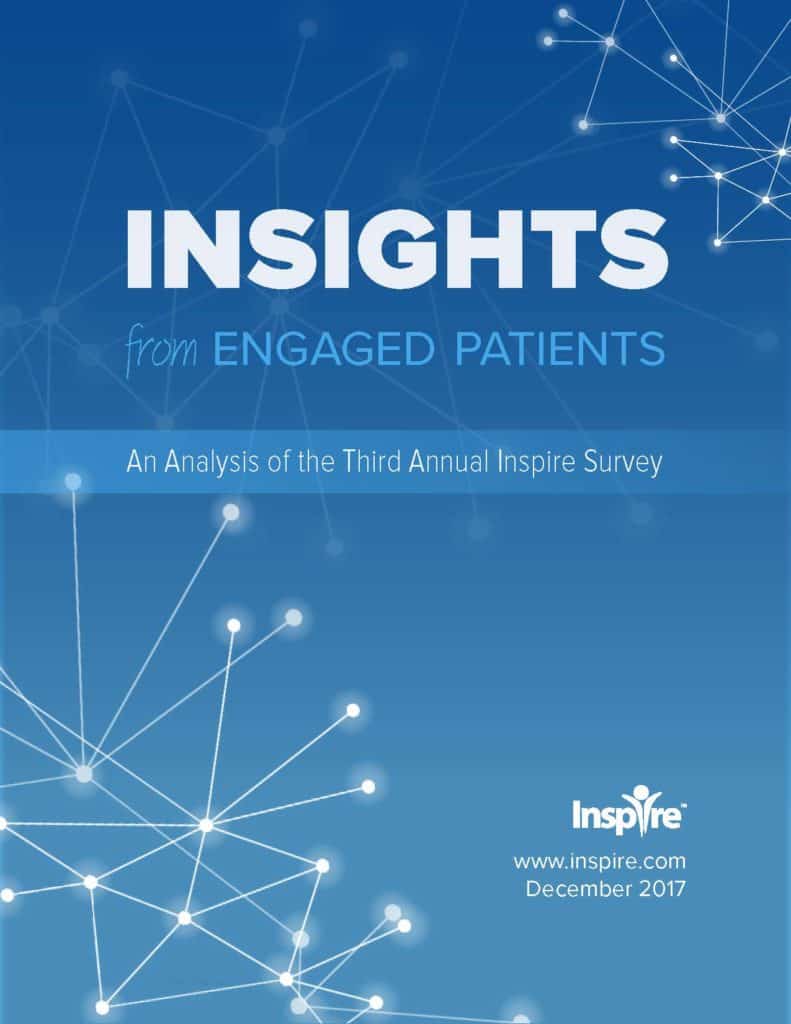In new report, Inspire examines clinical trials, genetic testing

Editor’s note: Last week, Inspire released, “Insights from Engaged Patients: An Analysis of the Third Annual Inspire Survey”.
Over the past three years, the Inspire Annual Survey has captured insights of over 30,000 respondents, representing more than seven million data points. In the following excerpt from the report executive summary, Dave Taylor, Inspire’s Senior Director of Research, discusses some of the findings from this year’s survey, and its implications for industry.
While the proverbial needle has not moved much during this time across many of the attributes we assess (in the survey), we have continued to add depth and new perspectives to the patient narrative. These elements have shown that the healthcare power dynamic is shifting as patients are becoming increasingly more educated, vocal and active.
Navigating treatment decisions is an area that has continuously shown a strong degree of patient involvement. Nearly 90% of patients ask their doctor about treatment options at least once a year, many do so as frequently as every other office visit. Respondents to this year’s survey confirmed that it is indeed the patient who is responsible for initiating this discussion. Despite the high level of influence in discussing treatment options, the actual decision making process is highly collaborative, even more so than in 2016.
As we did in year two of the survey, we further refined this year’s assessment to provide more topically relevant content to stakeholders in the healthcare arena. This year’s enhancements included a series of questions related to clinical trials that revealed only 14% of respondents having participated in a clinical trial. In addition to these individuals, only a small group had even discussed a trial as a potential course of treatment. It appears that this particular discussion is heavily driven by the physician and could be an area for greater patient education as many respondents voiced displeasure with the current dynamic just as this woman with breast cancer, “I WISH my doctor had brought up clinical trials or had been helpful when I asked about one.”
When it comes to better understanding their disease, patients have indicated using more sources of information than in previous years. In 2017, patients are using an average of 5 resources for their medical condition(s) with slight increases in the usage of online tools such as condition-specific websites/blogs and support communities. Patients may need to be more self-reliant when it comes to learning about their health as we have seen decreases in the distribution of educational materials at the doctor’s office and the pharmacy from 2016.
Another theme we have been monitoring closely is the role of technology in healthcare, something that we have seen continuous growth in since the inception of the Annual Survey. Usage of social media for healthcare-related research/support is up to 86% of patients, from 82% in 2016.

Women and younger patients/caregivers drive much of the growth here. Also growing in regards to healthcare social media usage is the percent of patients who have given advice to others through this medium. As it currently stands ~40% have either asked for or given advice to those online. The majority of this guidance focuses on treatment options and is typically perceived as the most helpful topic discussed online. The use of smartphones in healthcare management remains largely consistent from last year with more than half of respondents using them at least occasionally to search for information, prepare for doctor’s appointment and/or to record their symptoms.
For the past several years, the healthcare industry has strived to be more patient-centric, encouraging patients to learn about and take ownership of their healthcare. While we have certainly seen these initiatives resonate among a relatively small percentage of patients, spreading these efforts to the masses is the next great hurdle to clear. As more information is disseminated through the many resources to which people have turned to educate themselves, we expect to see a further shift in the physician-patient power dynamic, ultimately achieving the goal of an overall more collaborative approach to healthcare.
Inspire offers a trusted community to patients and caregivers. Our goal with this blog, this website and our content is to provide the life science industry access to the true, authentic patient voice. In so doing, we support faithful operationalization of patient-centricity. Take a look at our case studies, eBooks and news outlet coverage.






